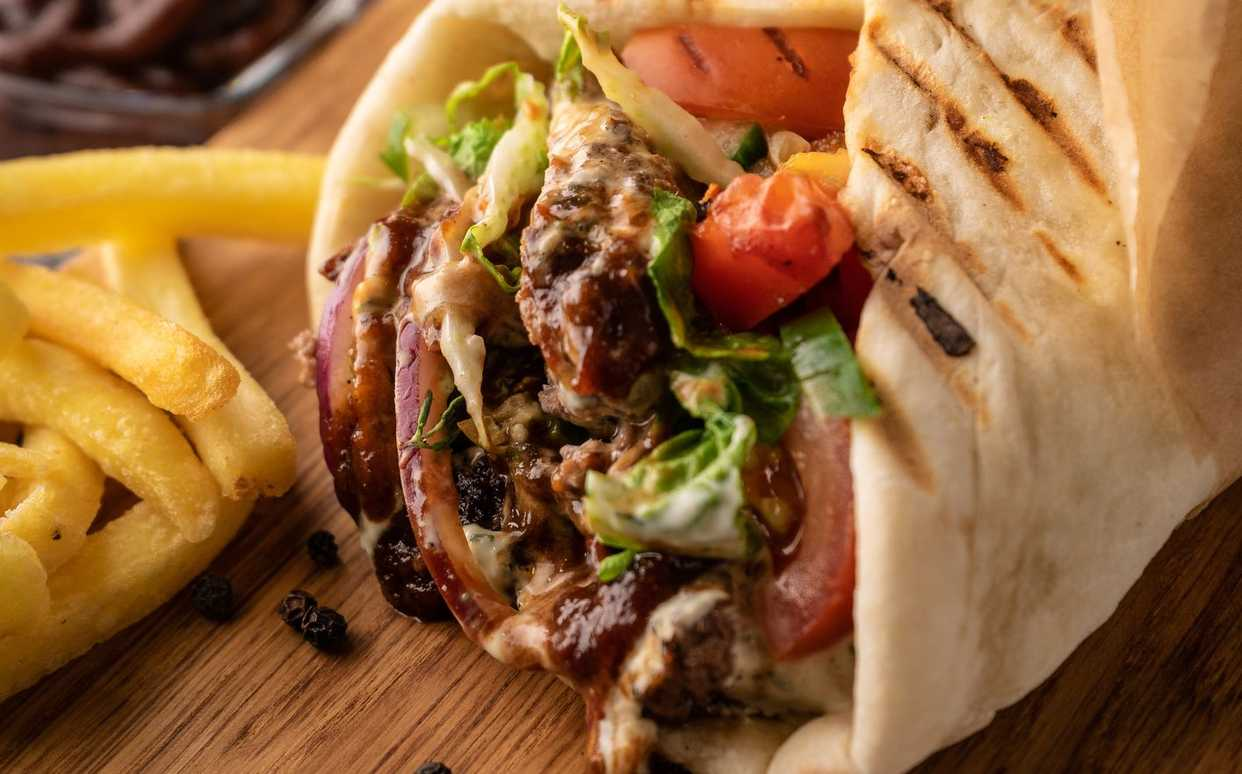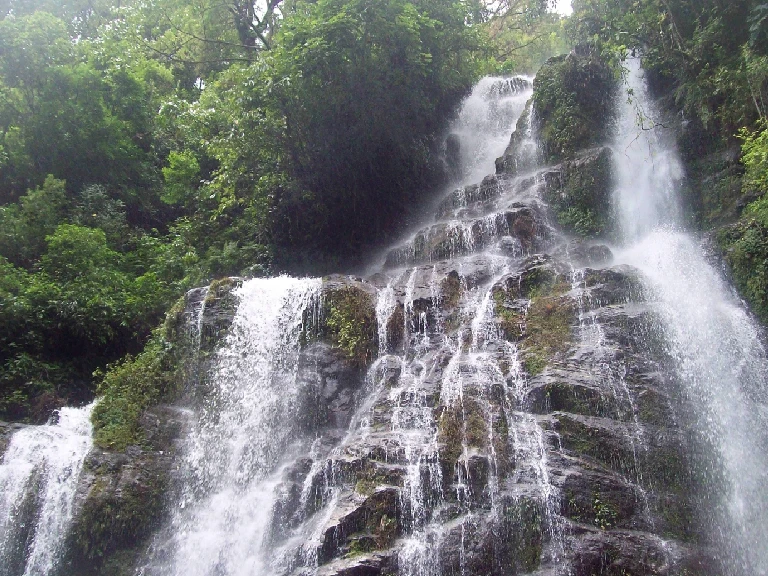Of French Fries, and Kebabs…
Food was to be the biggest bane
of our 4-month stay in Europe. And that was obvious - with low budgets, mostly
vegetarian folks, evidently life was to be tough. But then, as they say, tough
times build characters. And with them, stories for a lifetime.
I still remember our first meal
at school – the cafeteria at ESCP was bustling, but the food there was as
insipid as the café was large. I wandered a fair bit and at the end settled for noodles, while my friends got hold of a sadder meal of bread and fruits. When we sat around at the table, a million thoughts must have been
passing through our helpless minds.
Raw, uncooked food back at out
mess must have tasted better than this heap of bourgeois-baked balderdash. I
was reminded of the Twilight movie line where a vampire says, a meal without
blood is equivalent to humans feeding on candies and toffees. Or in Paris,
Indians feeding on bland noodles and desiccated bread.
But we tried to be innovative –
we found salt and pepper in plenty and used that to season our meal.
Incidentally, it was French monarch, Louis XIV who preferred these two spices
and removed everything else from his frugal dining table. The world followed in
his footsteps and even today, we just have black and white on every dining table.
If only he had like for cinnamon and cardamom and turmeric as well, this story would
have been very different.
Much to our delight, Louis’
descendants even had dispensers full of ketchup, mayonnaise and mustard. Mapboy
liked mayo in particular, and slathered his bread with the white sauce heavily,
devouring bread, salad et al, a smile on his face as if he had found his
Promised Land. But sharp that he was, he quickly spotted a discerning look in
my eyes and asked immediately what was mayo actually made of. I was wondering
if to spill the beans or not, when Daddu glugging his boisson (bwa-so,
French for drink)had to enlighten the world. He
happily answered that Mapboy’s manna was all raw egg yolks and oil. Eggs! And
that was it – all the King’s men, and all the King’s horses, could not make
Mapboy eat mayonnaise again. He stopped venturing to the sinful sauce section
of the dining hall, resorting only to salt and pepper. But as they taught us in
Marketing, unless the core product is good, no amount of marketing can yield
long lasting results. Likewise, no matter what condiments were provided in the
cafeteria, the main core product – blanched noodles and sourdough bread - was
incapable of satisfying hunger. For us nawabs of Awadh, used to Shahi panner
and Galouti kebabs, food was soon becoming a challenge. Until after
a few days, we discovered a hidden section of the cafeteria – providing hot
crispy French fries and the ambrosia of my Parisian life – doner kebabs. These
kebabs were nowhere close to the kebabs of the subcontinent, but still had
grilled flavour that went a long way to sustain me. And so it was, that
everyday we would wake up late (to avoid the ordeal of breakfast) and head
straight to school to start our day with a heavy brunch of French fries for the
veggie lads, and additional doner kebab for moi. There was a Maghrebi African in
charge of the station whom Mapboy happily called Kalua right from day 1. Talk
about racism in the heart of Paris.
And yet Kalua was our saviour –
everyday, he would serve us piping hot fries and kebabs. And no, we never tired
of it, and munched on them every single day with mustard, mayo, ketchup. On one
occasion, I suspected if the oil used to fry was animal oil, but after the mayonnaise incident, I
never had the heart of asking Kalua the truth – what if it was tallow (is it
why it tasted so scrumptious?), the conscientious me could never keep the truth
from my friends, after which not only would Kalua be crucified, there would be
nothing left to eat for brunch. And so it was that in a classic example of
multiculturalism, African kalua saved subcontinental nomads with Belgian
and middle eastern food. (French fries were apparently made in Belgium when
during winters, Belgians failed to find fish with rivers being frozen, thereby
using potatoes to replace fish that was fried for consumption).
_________________
It was during these days that we
reinforced an enlightenment that we perhaps already had – that mess (canteen)
food back at campus was truly magnificent. Normally the stories you would hear
of mess food in most technical colleges wouldn’t inspire even the least fussy
eater, but Lucknow was good. Gobsmacking, on Parisian hindsight! How many days had
I woke up on a cold wintry day and not craved a plate of steaming peanut
scattered poha, along with excessive helpings of sambar and vada, followed by
rich masala chai (common breakfast on Wednesdays in campus)! By the time
the idlis would get digested and the brain sapped of all energy from the DCP
(Desperate class participations) and the Modigliani-Miller theorems,
lunch would be ready just in time after the classes – at least 3 dishes besides
rich dal, generous portions of salad, curd, curd rice, fried eggs….heaven
indeed was a place on earth. And this was before the evening snacks of unlimited
fritters and chai, followed by dinner that included meat for the carnivorous souls
– tandoori chicken, crispy fried fish, mutton curry - Lucknow maintained its
status as the land of Nawabs even centuries after their departure.
And then suddenly, all of these
were replaced by Kalua’s kebabs, sonday biscuits and dinner that we miserable
souls had to prepare ourselves after day-long inculcation of international finance
and indiscernible French! Yet, this was Paris, the city of lights, and as if to
show her gratitude for our infinite forbearance, everyday at 8, when we would
be busy preparing dinner without complaint, the Eiffel tower would wake up to
life - through a narrow slit of a window at the far end of the kitchen corridor
- and glitter resplendently with her million lights, sparkling, shining, scintillating,
and showering us with hope; voices of the faraway future as if coming back
through tendrils in time and reminding us, we would revisit that spot many a
time in the days ahead with a smile, the Tower reminding to stay there, do your
bit, chug along, this is, after all the best vacation you will have in your
life!
Indeed, we stayed there for four
months, chugged along, chopped our onions, diced our potatoes and julienned our
bell-peppers, perhaps our trials and tribulations made more bearable by the
fact that we had limited time - Visibility of the destination, making the journey
a bit more enjoyable. And yet, once in a while, food from the homeland would light
both tastebuds and souls. I still remember, at the base of Mount Titlis, near
the Swiss capital, after countless hours of snow-fighting, the group got
overwhelmed on finding a small stall selling samosas. Parsimony was hurled back
to the Alps, while the junta happily threw away their euros for the
crispy samosas giving back a morsel of the homeland, not realising what watered
more – the eyes or the tastebuds.
In yet another incident I
recollect Mapboy and I were drenched from head to toe while walking around Etretat
– a beautiful white- limestone sculpted town in the north of France, famous for
the Normandy WW2 landings. Shivering in the November rains, least bothered
about Guns and Roses, we rued our luck when we missed a bus (our sanctuary of
heat and warmth after the bedraggling rains) only to step into a nearby eatery
for shelter and realise that luck appears in strange places in unexpected
forms. That day, it came in the garb of succulent tandoori chicken wrapped in soft
pita bread – a rarity in my limited travels in France; for my vegetarian friend,
it was seared aubergine in chilli flakes. We devoured the rolls one after
another, and Normandy or not, we would have decorated that chef that day with
Legions of Honour all for the ghar ka khana that we had missed for long.
But these incidents were the rarity
rather than the norm. Burdened by language barriers, Europe back then at least
- without Google and smartphones - was a hard place to satisfy a
non-conventional diet with a small budget. It was hard to explain at
Marseilles, in broken French, that my friends did not need meat in their rolls,
and no, fish was not vegetarian, no, not even eggs. It was harder to explain in
Prague that we were looking for food to eat, not booze to drink. I felt repulsed
in Lisbon when for a fish sandwich, all I got was a stinky raw sardine slapped
in a bun. On the other side, international standardisation in the menus of McD and
Burger King was a lifesaver; so were the most basic of pizzas found in every
street and corner of Italy (until Daddu would remind of biryani found similarly
in every nook and corner of Lucknow…). There was relief as well – Munich, a
very busy junction that we would encounter in many a trip, was bustling with
shops where people understood and spoke English. A sandwich shop was an all-time
favourite. And falafels – legume fritters – were a universal rescuer for my vegetarian
friends on many an occasion. Whatever the adventures – or misadventures - we
knew at the end of the weekend, we would be back in Paris where Kalua’s kebabs
and fries would still welcome us with mustard and mayonnaise.
The true epilogue to this
chapter though was written, quite silently, not in Europe, but back in Lucknow.
After a four month long, wearied-out adventure, when we were back in the
comforts of our campus, we felt overjoyed with the little joys of life, in the
campus food, its spices, the late-night snacks available until 3 in the
morning, of salami sandwiches and hot maggi, and the infinite supply of piping
hot tea, laden with cardamom and ginger. That winter, you could see us five
blokes, sitting in the warmth of the winter sun of Lucknow and enjoying every
meal and morsel. No words spoken, the ardour and the peacefulness visible in
those weary eyes saying, In paucity alone, one truly finds his riches…
It’s been years but even today, when I pick up a dish of middle-eastern kebabs and fries, I cannot help but give a smile, often wondering what would we have done without the Maghrebi’s portions back in the cafeteria…I look outside and can imagine the Tower, shining, sparkling and smiling even today, despite all the years that have passed...
18th August 2023



Comments
Post a Comment